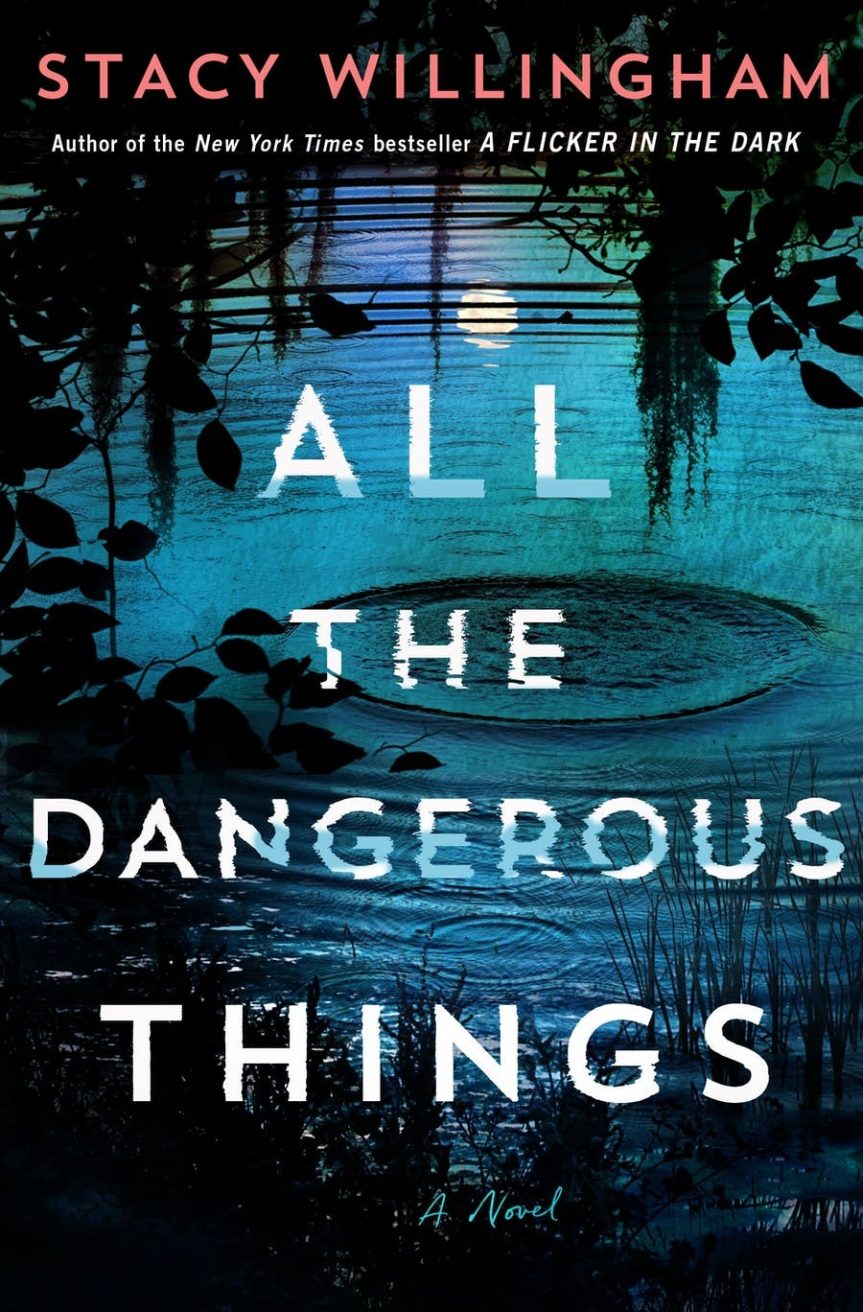Imagine putting your toddler son to sleep, then waking up in the morning to find him missing from his bed. The baby monitor conveniently ran out of batteries a couple of days ago, and there is no evidence of a break-in besides an open window and a footprint outside. The police found his stuffed animal near a marsh. All the evidence points to the suspicion that it was an insider job. You feel like something is off. Something is missing from your memories. Something important. Something about yourself that could change the trajectory of the case.
In All the Dangerous Things, we follow Isabelle Drake as she tries to find her missing son, Mason. It’s been a year since he has gone missing, and she hasn’t slept since, suffering from insomnia. There’s not much evidence, and what is found suggests that the kidnapper was in the house at the time. The police have given up, and so has Isabelle’s husband, Ben. Isabelle is alone, ever so stubborn, and determined to find her son despite the lack of support from those around her. Isabelle travels around the country to present at true crime conventions, keeping the story fresh in the people’s minds, but she wonders how many are genuinely empathizing with her, and how many are just there purely for entertainment. She is later joined by Waylon, a true crime podcaster, who seemingly wants to help her out by offering to broadcast her story through his program–but he seems to know too much about Isabelle’s past than expected.
All the Dangerous Things is a domestic psychological thriller which, told by an unreliable narrator, asks the question of who Isabelle, and ultimately the reader, should trust. Isabelle has a history of sleepwalking, which makes her 1) a dangerous person when sleeping since she has no control over her body, and 2) a narrative doubtful since she has no memories of her actions. I have to say that I was really skeptical of the use of the first-person POV since I don’t really enjoy reading this POV, especially in a crime novel setting. However, the mental issues Isabelle suffers from create uncertainty when reading her perspectives.
The other characters are equally untrustworthy. There are no “good” guys, only morally gray characters, which include the protagonist herself. Isabelle and Ben have been together for seven years, but have been having relationship problems recently. Mason’s disappearance was the last straw for Ben, so he left Isabelle and distanced himself from the case, also while having an affair. Waylon seems to be a trustworthy partner, but he is suspiciously interested in Isabelle’s past and the history of her mental state. The audience at Isabelle’s presentations can’t escape her watchful eyes either, as she desperately filters through their names to find potential suspects.
That is not to say that the book is without its flaws. I started to become irritated at Isabelle since she quite literally harasses innocent civilians that she assumes are potential suspects. It is in character for her to be so alert about her surroundings, but I personally don’t appreciate a main lead who makes brainless decisions and defends her wrongdoings by painting others in a bad light. I have nothing against morally gray characters, but I have everything against self-proclaimed righteous people.
Fortunately, the plot of this novel is so compelling that I can ignore the flaws in Isabelle. It is a slow-burn mystery of over 300 pages. The case is solved within maybe the last 10% of the novel, so it has a slow rise and a fast drop, but that’s what makes it satisfying. The novel doesn’t trudge through the process of gathering the evidence – rather the opposite. Every few chapters or so (which is like every page since the chapters are quite short), a new piece of evidence is revealed. However, the novel is written in a way that each piece of evidence merely hints at a direction, but there’s still something that’s missing in order to uncover the truth, which keeps me on edge. And since everyone is hiding a secret, the evidence is useless until the pieces finally fall together during the climax. Everything builds up the tension that is finally released during the final confrontation, giving it a satisfactory ending and leaving me with a sigh of relief at knowing the answer.

